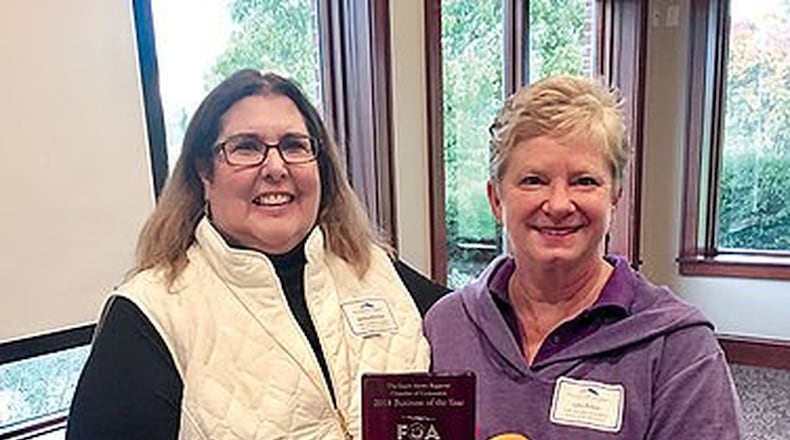Now the nonprofit has hired its first executive director with decades of experience in program management.
READ MORE: Millions in tax money pays for drug treatment — is it working?
Anita Kitchen is retired from the Montgomery County Board of Developmental Disabilities Services. She worked there for more than 30 years, including piloting new programs.
“We hired her to be strong where I’m not,” Erion said of Kitchen. “She’s got the administrative background from working for Montgomery County.”
Kitchen, who was hired at the end of September, said she was looking for an opportunity in retirement to work with an organization that she was passionate about.
DETAILS: Vets twice as likely to fatally OD — what the Dayton VA is doing about it
“I found this organization to be one of the most supportive and caring organizations that I’ve seen,” she said.
FOA has had a great year, Erion said, being featured in several national media stories about what’s working to fight the opioid crisis in Dayton.
That attention has caused an increase in calls seeking FOA chapters nationwide, she said.
“I have people weekly reaching out to me wanting to know if they can have FOA in their community,” Erion said. “It breaks my heart that families still don’t have what they need.”
Part of Kitchen’s role will be to secure money to develop FOA sites in more locations in Ohio and nationwide. Eventually that might mean partnering with a another national organization, Erion said.
Other plans for 2019 include launching a formal helpline and expanding support to local businesses who want to better understand how addiction affects their workers.
The FOA Navigator Network recently secured a $5,700 grant from the Physicians Charitable Trust. With that money, volunteers will be trained to be on call at a toll-free number and connect local families to many types of support.
RELATED: Montgomery County Coroner says local overdose deaths are climbing again
Currently Erion’s cell phone has become the go-to helpline for many families in the area. Some need referrals for a loved one to get into treatment, but many just want to talk to someone.
“It can be overwhelming,” Erion said. “It’s really going to take a team.”
FOA began doing outreach to local businesses this year and wants to expand opportunities like lunch-and-learns to help employers understand what their workforce is facing when a loved one has an addiction.
“It doesn’t matter if our loved one is in recovery or out on the streets or has overdosed and died, it’s severely impacting us,” Erion said.
FOA already has started to plan its annual Rally 4 Recovery, which will be held Aug. 25.
MORE FROM THE PATH FORWARD:
New challenge for recovering addicts: Finding a job
Can Dayton go from ‘overdose capital’ to a model for recovery?
Mother of 7 rebuilding family after addiction
A day with Dayton’s overdose response team
ABOUT THE PATH FORWARD
Like all of you, we care deeply about our community, and want it to be the best it can be. We have formed a team to dig into the most pressing issues facing the Miami Valley. The Path Forward project, with your help and that of a 16-member community advisory board, seeks solutions to issues readers told us they were most concerned about.
Follow the project at DaytonDailyNews/PathForward and share your ideas on our Facebook pages.
About the Author
